Real Education Report
8 Apr 2022
We know children are resilient and can adapt to change quickly, but with ongoing disruptions in schooling over the last two years, there is a limit to what they can bear. As parents, we have been increasingly concerned when it comes to their education and the long-term impacts, from declined academic performance to mental wellbeing issues and limited social interactions to increased screen time.
The Real Education Report 2022 continues our research from Private vs Public Schools Report, offering valuable, up-to-date insights into the challenges faced by working parents in Australia. The Real Education Report 2022 explores key education issues in Australia, from the impact of the pandemic on children and their education to attitudes and key decision drivers of Australian parents around school preferences.
Impact of the pandemic on children and parents
During the pandemic, Aussie children of today have spent more time learning at home than in the classroom. For many parents, juggling home schooling, work and other family priorities has been a challenge and most of those surveyed agree that remote learning has not been effective for their children (62%). In fact, most feel education has been seriously impacted by all of these disruptions (64%) as parents surveyed expressed that their children have significantly fallen behind due to lockdowns and home schooling (61%).
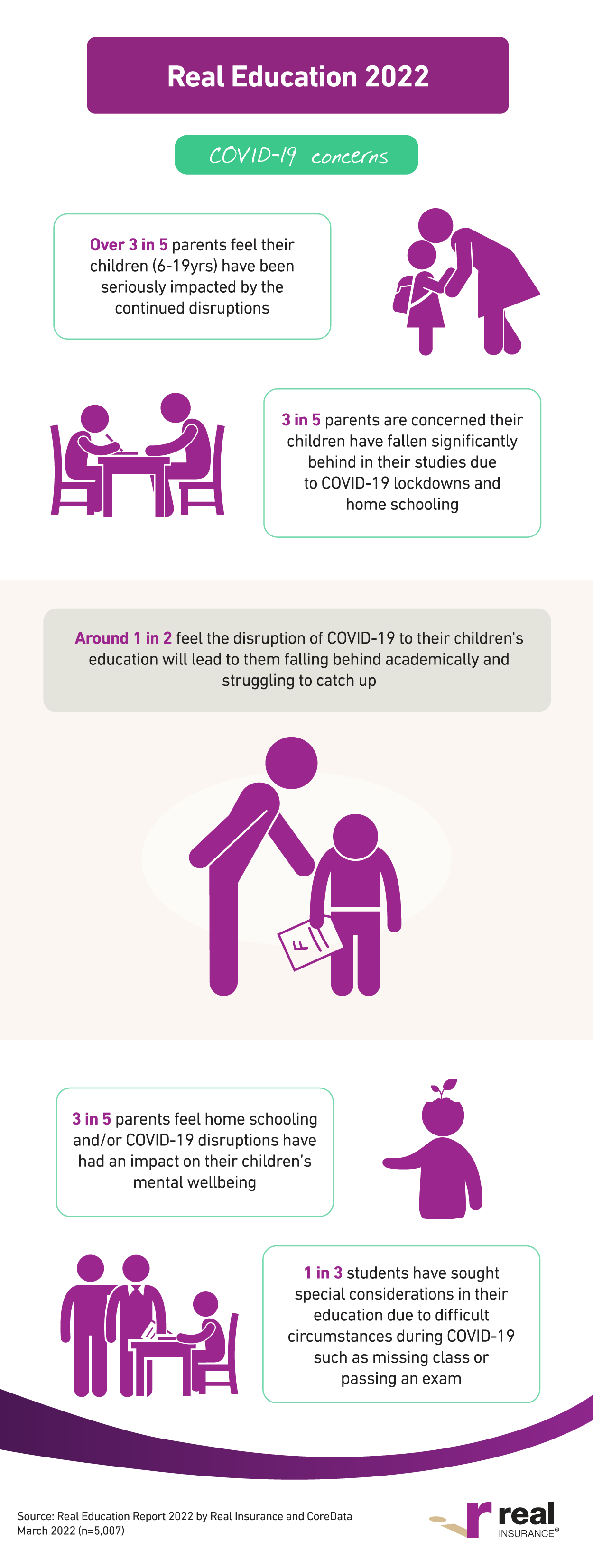
Unfortunately, parents' concerns include long-term impacts on our children, from repeating a year (25%), finding it difficult to get into university (28%), lacking key skill development (52%) and hindering future job prospects (31%). Parents also implemented additional resources such as hiring a private tutor (9%) or accessing more resources online (32%), as well as dedicating more time to support their studies (60%), to help keep children on track.
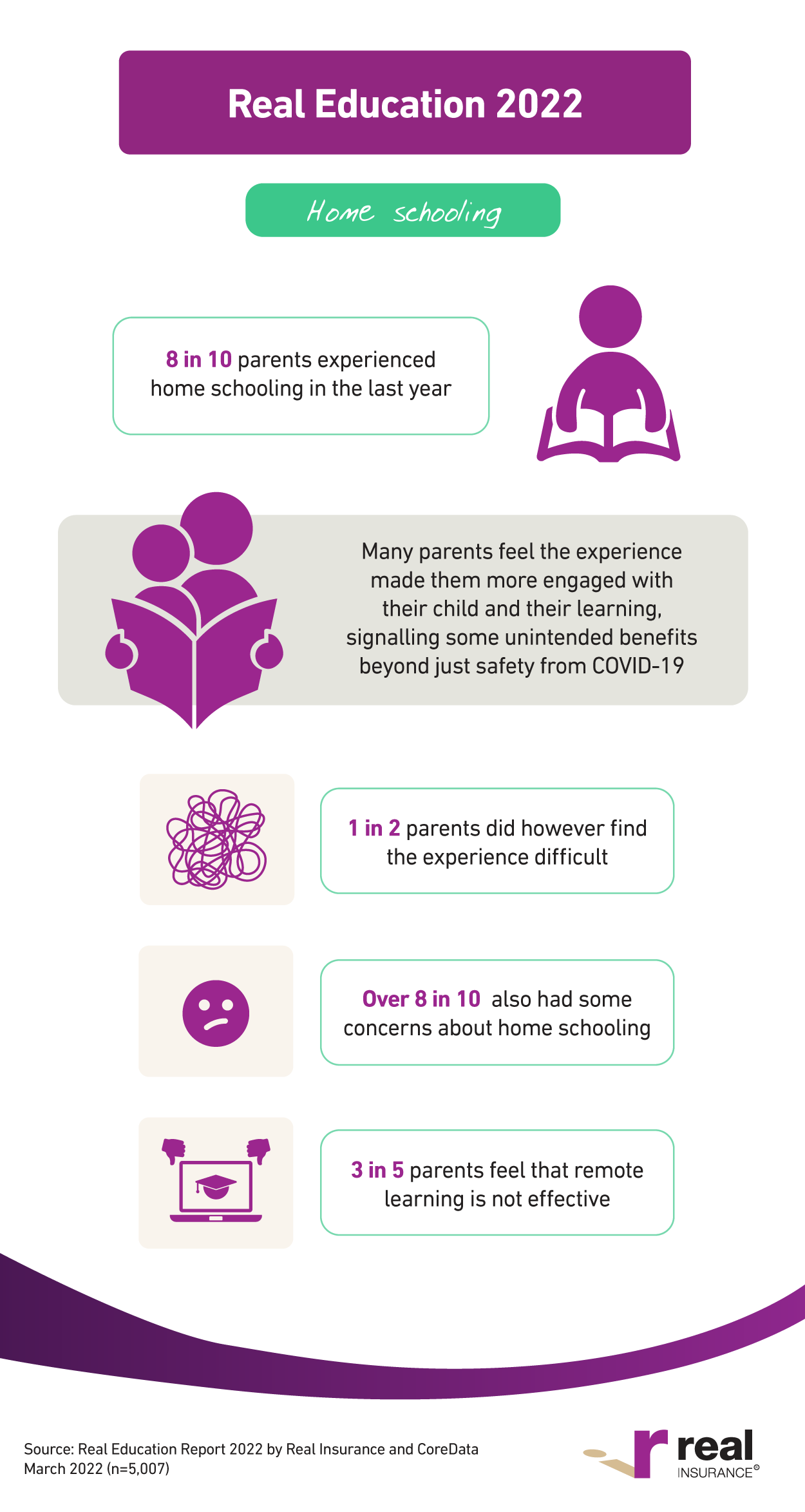
Children’s mental health and wellbeing
But it’s not only academic progress that parents are worried about. Isolation and staying at home for extended periods of time have also been a concern of parents, feeling this disruption has caused an impact on children’s mental health and wellbeing (62%). Parent’s biggest concerns about home schooling were cited as reduced opportunities to socialise in person with peers (55%), reduced quality and depth of the education experience (46%), and increased screen time (45%) which has led to children losing confidence or social skills (55%), and increased anxiety or stress (54%).
Back to school: challenges and benefits
Going back to school has come with its own challenges with regards to the health and safety of our children (52%). Most parents are bracing themselves for another disrupted school year (73%) as children have returned to face-to-face learning in late January, and many are still feeling apprehensive about keeping them safe and healthy while back at school (62%).
Fortunately, children returning to the classroom has also come with many benefits. Many could empathise with how much their children really missed social interactions (90%) and could see how excited they were about going back to school again (38%).
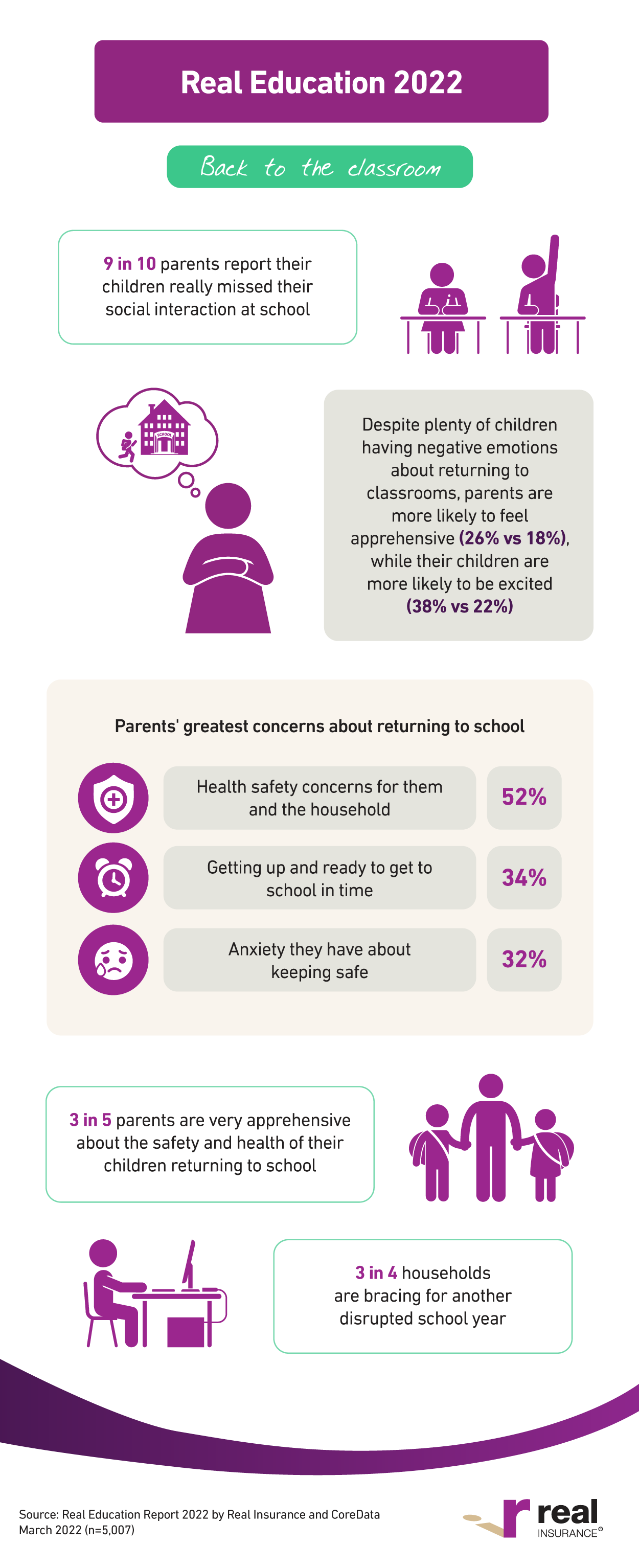
The considerations when choosing a ‘good school’ is changing
Unlike ever before, we’ve been able to get a closer glimpse of the education our children are receiving and as a result of the household experiences through COVID-19, parents have changed their perspective on what is an important consideration when selecting a good school (62%). While parents continue to factor in academic reputation and NAPLAN results (36%), in 2022, parents are putting more focus on the safe operations of schools during pandemics (54%), as well as access to digital resources and effective home-schooling support (46%).
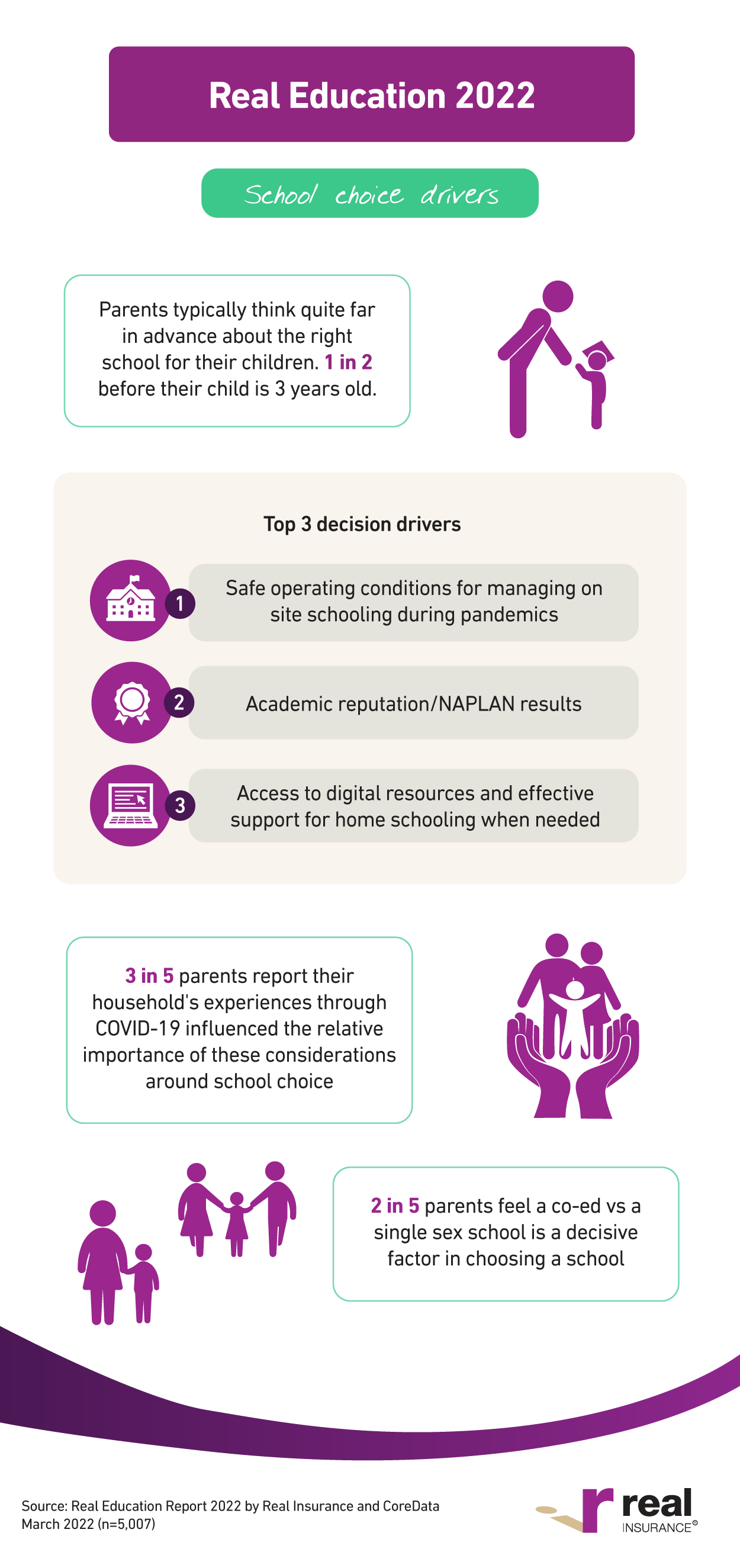
Private vs. public school
While private education has always been preferred by most (39%), recent experiences have made private schools even more of a front-runner with some parents (15%). A third of those surveyed (36%) who changed preferences have either already enrolled or are planning to enrol their children in the private system, after their demonstrated value-add during lockdowns, with some advantages being the standard of facilities (45%) and more individual attention (35%).
However, some still prefer public schools (30%), with key advantages being greater engagement in the local area (93%) and more diversity (89%). Furthermore, 1 in 2 parents (50%) are willing to move houses to a new area to get their children into a better public school.
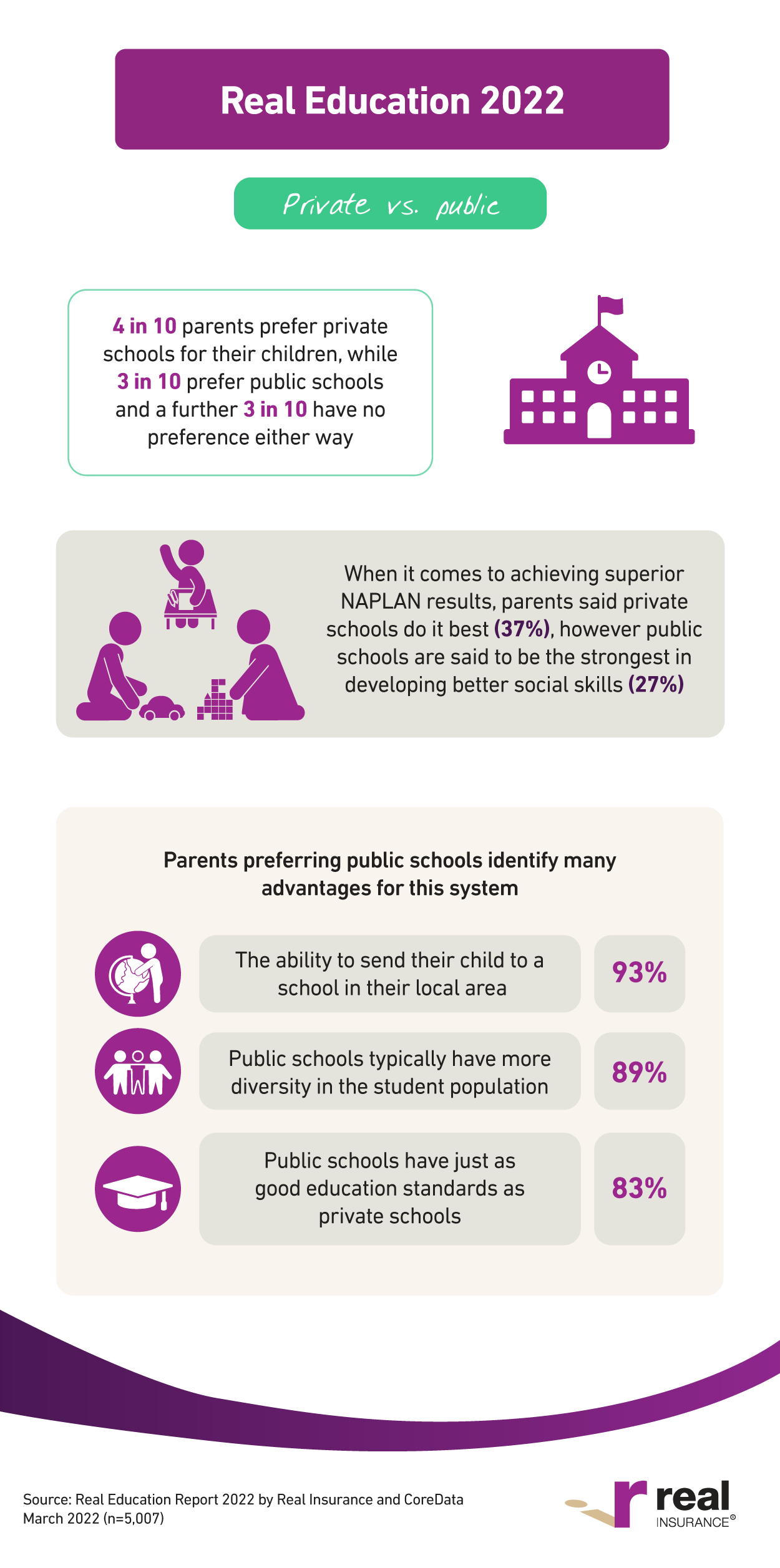
Is private school worth the financial sacrifice or simply unaffordable?
The often-heavy price tag that comes with private education is a significant deterrent, with almost half (44%) admitting they’d prefer to send their children to a private school but can’t afford to. For those with children already enrolled in the private system, more than half admit to paying ten percent or more of their total household income on school fees (58%), and a similar proportion will consider pulling their children out of their private school if fees continue to increase (56%).
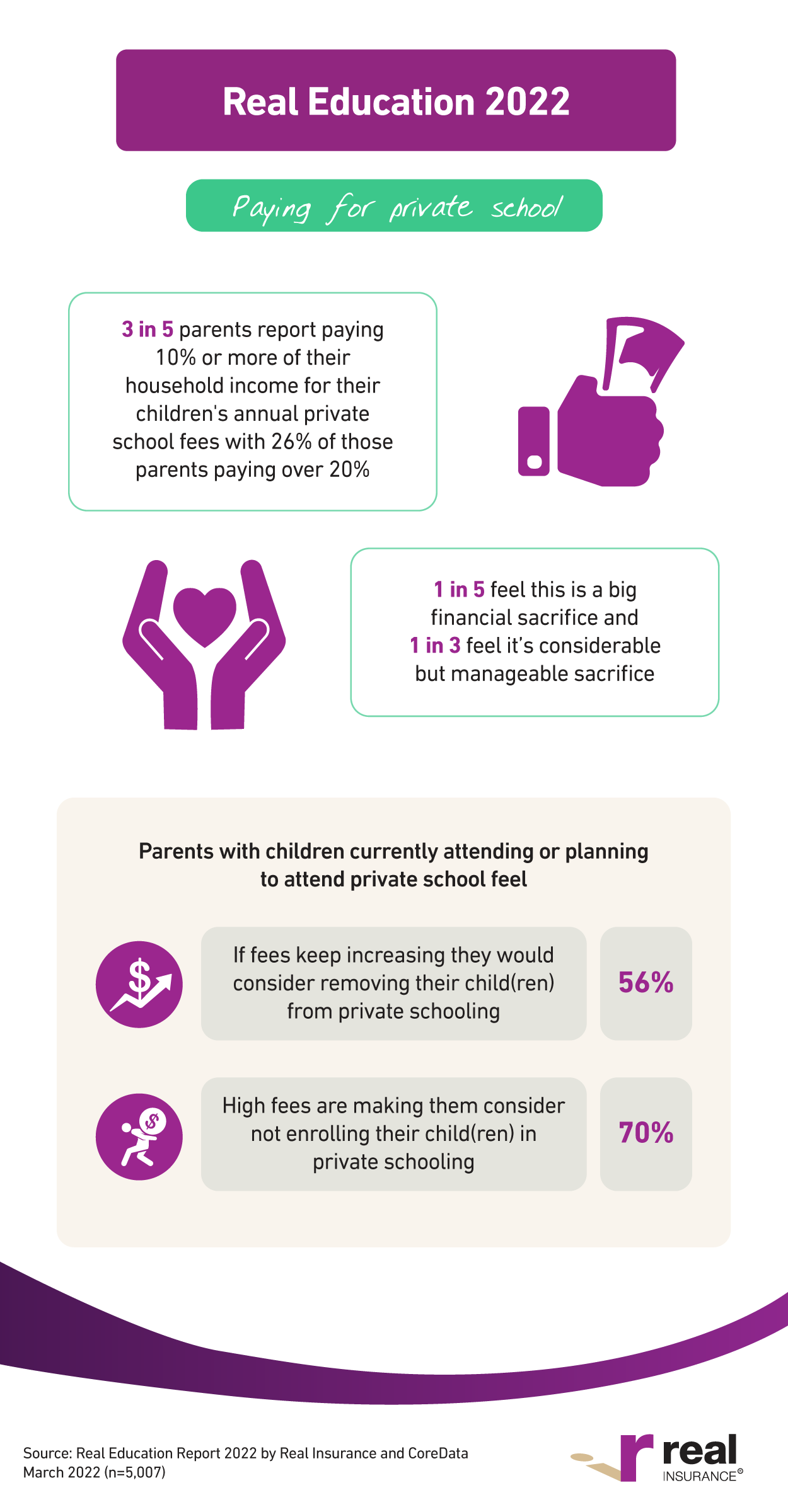
Australian parents want what is best for their children, but it is not always easy to get what you planned for. Nevertheless, making these difficult choices and shifting our perspectives and priorities on the future of education allows families to grow, adapt and support each other during the good times and the bad.
As families invest in their children's education, Real Insurance offers solutions to help manage these financial commitments. Our life insurance and income protection options are designed to provide peace of mind, ensuring that your family's financial well-being is safeguarded during life's pivotal moments.
Download full research report
- Real Education Report [PDF]